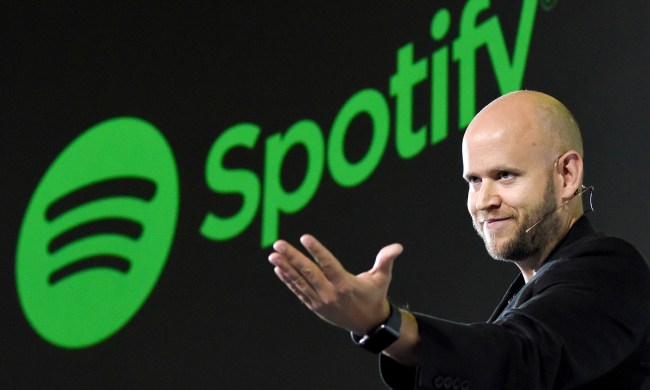
As streaming music services have increasingly become the norm, many claim songwriters have gotten the short end of the royalty stick. Now, two of the bodies that represent songwriters are in a court battle to get songwriters the payment they deserve.
The top two American organizations responsible for collecting paying songwriters’ royalties, the American Society of Composers Authors and Publishers (ASCAP), and Broadcast Music Inc. (BMI), went before a Senate Judiciary Committee’s Antitrust panel claiming the current method for calculating songwriter royalties is unfair.
It’s worth noting that the music copyright of a song, and its corresponding royalty payment, is divided between two parties: the songwriters and the performers. While the songwriters and the performers are sometimes the same people (or group), they often aren’t. Many top 40 pop songs, for instance, are often written by professional songwriters and then passed off to a different (much more well-known) recording artist. ASCAP and BMI are responsible for collecting and paying songwriters’ royalties for music played in bars and restaurants, on TV, radio and streaming services.
It’s the last category that has become a sticking point, as multiple parties have complained the current payment system for streaming services is improperly compensating those responsible for writing the top hits of today.
To illustrate the disparity in the current system, Lee Thomas Miller, president of the Nashville Songwriters Assn. International, and a songwriter, gave a face to the issue, telling the Committee he’d received a sixth portion of just $7,000 for co-penning a No. 1 hit by Tim McGraw (via National Law Journal).
“The use of music has increased exponentially, but the payments have not followed,” said ASCAP CEO Elizabeth Matthews to the Senate earlier this month (via Hip Hop DX).
In particular, the organizations are arguing to revise antitrust consent decrees, a system originally established in 1941 that hasn’t been revised since 2001 (for ASCAP) and 1994 (for BMI).
“New and innovative market players require experimentation and novel approaches to music licensing and yet the consent decrees restricts our ability to adapt because it is still stuck in 1941,” continued Williams.
Opposing the songwriters in this battle are the National Association of Broadcasters and streaming services, who are worried that paying songwriters more will effect their bottom line.
It’s an ongoing battle, and the ramifications are massive for both songwriters and streaming services, which are in an ongoing battle themselves to determine the best business model.
Apple announced earlier this month that the company’s new Beats-powered iTunes streaming service will launch in June; Spotify still claims it needs to add 10s of millions of paid users to bring royalty payments up to a more fair standard, while getting backlash from labels about its free service; and Pandora is involved in its own court battle with BMI over royalty rates, a first in its history according to Forbes.
It’s a volatile time in the streaming music business and the latest review of the system has the potential to shake things up even more. We’ll keep you updated.


